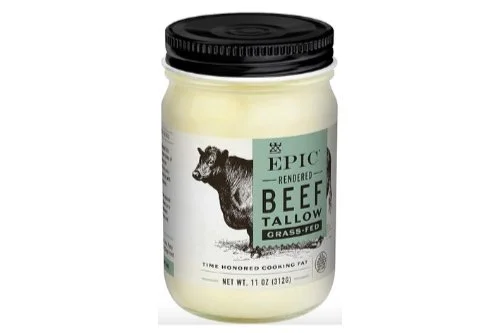Mycobind
The Ultimate Guide for Carnivores - Benefits, Usage, and Tips
For those adhering to a carnivore diet and seeking ways to optimize their health, Mycobind offers a promising solution. This supplement is specifically formulated to assist with Chronic Inflammatory Response Syndrome (CIRS) and biotoxin illnesses, making it an essential addition for anyone dealing with these conditions. Mycobind contains key ingredients such as okra and beet juice extract, which help remove inflammatory cytokines and harmful compounds from the body.
Understanding how Mycobind works can significantly enhance your health journey. The dietary supplement acts as a binding agent to eliminate noxious metabolic compounds while also providing antimicrobial benefits against mycotoxins and other biotoxins like Lyme disease. The combination of ingredients in Mycobind supports the body's natural detoxification processes, particularly important for those on a meat-based diet.
Judy Cho, a certified functional nutritional therapy practitioner, emphasizes the importance of supplements like Mycobind in maintaining optimal health on a carnivore diet. This supplement, part of both TRIAD 2 Immune support and TRIAD 4 Detoxification, underscores the value of targeted nutrition. By incorporating Mycobind into their regimen, carnivore diet enthusiasts can better manage inflammation and detoxification challenges.
Understanding the Carnivore Diet
The carnivore diet, an all-meat elimination diet, focuses on consuming animal products exclusively to improve health and manage weight. It emphasizes high protein, quality fats, and the elimination of carbohydrates, aligning with the principles of low-carb lifestyles like keto but taken to an extreme.
Fundamentals of the Carnivore Diet
The carnivore diet requires participants to eat only animal-based foods. This includes meats, fish, eggs, and small amounts of low-lactose dairy like butter and hard cheeses. Water and salt are staples, while all plant-based foods are eliminated.
Key nutrients come from protein and fats. Animal protein provides essential amino acids, while animal fats offer energy. This diet often excludes carbohydrates, differing from the balanced macronutrient approach of other diets.
Being an elimination diet, adherents believe it helps identify food sensitivities and reduce intake of potential toxins or inflammatory substances found in plants. The simplicity of the diet can appeal to those seeking straightforward meal planning.
Health Benefits and Risks
Benefits of the carnivore diet include potential weight loss, reduced inflammation, and improved mental clarity. High protein intake can be beneficial for those looking to build muscle.
Participants often report increased energy levels and better hormonal regulation. The diet's focus on whole, unprocessed foods can contribute to these health improvements.
Risks must be considered. Long-term adherence may lead to nutrient deficiencies, given the exclusion of fruits, vegetables, and other plant-based foods rich in essential vitamins and minerals. There may be increased concerns over heart disease due to high saturated fat intake.
Common side effects include gastrointestinal issues and possible negative impacts on cholesterol levels. It's crucial for individuals to monitor their health closely and consult with healthcare providers when adopting this diet.
Diet Comparison
The carnivore diet is often compared to ketogenic and paleo diets. The keto diet emphasizes high fat, moderate protein, and very low carbohydrate intake. While both promote low-carb lifestyles, keto allows vegetables and certain fruits.
The paleo diet focuses on consuming foods presumed to be similar to what might have been eaten during the Paleolithic era. This includes lean meats, fish, fruits, vegetables, nuts, and seeds but excludes dairy, grains, and processed foods.
Unlike keto and paleo, the carnivore diet strictly eliminates all plant-based foods, which can make it more restrictive. Its extreme nature may appeal to those seeking more rapid or specific health outcomes but is less suitable for long-term sustainability.
Dietary Components
Mycobind, specifically designed for those following a carnivore diet, primarily includes meats and proteins, while deliberately excluding several food groups known to interfere with its purpose.
Meats and Proteins
Mycobind's primary ingredients focus on high-quality proteins from various animal sources. Beef is a staple, providing essential amino acids and a rich supply of creatine, supporting muscle health and energy levels. Additionally, liver stands out due to its nutrient density, offering vitamins like A and B12, iron, and folate. Eggs are another crucial component, known for their excellent protein content and essential cholesterol levels.
Seafood, including fish and shellfish, contributes omega-3 fatty acids and iodine, which are vital for thyroid function. The diet excludes most plant-based proteins, emphasizing animal products for their complete amino acid profiles. Occasionally, dairy products like cheese and butter are included, providing fats essential for energy and satiety.
Excluded Food Groups
In alignment with the carnivore model, many common food groups are excluded. Fruits are generally avoided due to their sugar content, which is unnecessary in a zero-carb diet. Vegetables, despite their fiber and micronutrients, are also excluded to prevent potential inflammation and gut irritability. Grains and nuts are omitted to eliminate anti-nutrients like lectins and phytic acid, which can impair mineral absorption.
Fiber, typically derived from plant matter, is not a component of Mycobind, aligning with the carnivore diet's focus on animal-based foods. These restrictions aim to reduce dietary variables that could contribute to Chronic Inflammatory Response Syndrome (CIRS) and promote a pure, inflammation-free diet.
Nutritional Strategies
Adopting a carnivore diet involves carefully managing fats, vitamins, hydration, and electrolytes to ensure overall health and balance, focusing on specific needs of this meat-based approach.
Fats and Oils in the Carnivore Diet
Fats are a cornerstone of the carnivore diet, providing essential energy and aiding in nutrient absorption. It is critical to incorporate both saturated fats and other healthy oils. Animal-based sources such as beef, lamb, and pork provide rich saturated fat content.
Oils like olive oil, coconut oil, and MCT oil can be used in moderation to vary fat intake and add beneficial components like medium-chain triglycerides. Maintaining a balance between these fats helps support hormone production and cellular functions.
Vitamins and Supplements
While the carnivore diet naturally includes many nutrients, some vitamins may require additional focus. Vitamin C, typically scarce in meat, can be supplemented or sourced from organ meats like raw liver.
Including dietary supplements for minerals and vitamins like sodium, calcium, and possibly, omega-3 fatty acids helps address minor deficiencies. Mycobind is one such supplement that aids in detoxification and reducing inflammation, specifically benefiting those with chronic conditions.
You can often find exclusive online offers for vitamin C, calcium, and omega-3 that you won’t see in stores!
Hydration and Electrolytes
Hydration is crucial, and so is maintaining proper electrolyte levels. Sodium is vital for nerve and muscle function; thus, adding sea salt to meals helps meet these needs.
Ensuring adequate intake of other electrolytes like potassium and magnesium supports overall wellness, particularly in the context of low-carb diets where electrolyte loss can be significant. Drinking plenty of water and including bone broth in the diet can aid in mineral balance and hydration.
Check out customer reviews online to help you choose the best sea salt, potassium, and magnesium!
Special Considerations
Mycobind can be an essential part of an all-meat diet, particularly for those dealing with chronic illnesses like Chronic Inflammatory Response Syndrome (CIRS) or biotoxin illnesses. It's important to adapt to dietary changes and understand how this dietary supplement interacts with specific health conditions.
Adapting to an All-Meat Diet
Adopting the carnivore diet involves eliminating all plant-based foods, which can be a significant adjustment. Inflammatory cytokines reduction is key in the healing process. This allows the body to begin recovering from chronic fatigue and similar conditions.
Transitioning often requires metabolic flexibility to switch from burning carbohydrates to fats for energy. During this adaptation period, some may experience symptoms like fatigue or digestive changes. Individuals coping with depression and other chronic conditions may find the switch challenging but ultimately beneficial.
Carnivore Diet for Specific Conditions
For those suffering from Chronic Inflammatory Response Syndrome (CIRS) or other biotoxin illnesses, Mycobind can be particularly helpful. It contains ingredients such as okra and beet juice extract, known to remove inflammatory cytokines and other harmful compounds produced in CIRS.
Patients with chronic illnesses may find relief from persistent symptoms due to the detoxifying properties of Mycobind. Improving the body's resilience through a well-managed, nutrient-rich carnivore diet can enhance overall well-being and reduce chronic fatigue. Managing dietary supplements effectively within this framework ensures comprehensive support during the healing process.
Incorporating Mycobind into a well-planned carnivore diet can make a significant difference for those with specific health challenges.
Practical Tips and Guidance
Incorporating Mycobind into a carnivore diet requires strategic meal planning and a holistic approach to lifestyle integration. Properly managing this combination can enhance gut health, reduce inflammation, and improve overall well-being.
Meal Planning and Preparation
Meal planning is essential when integrating Mycobind with a carnivore diet. Start by focusing on consistent meal times and portion sizes.
Prepare meals featuring high-quality ruminant meats, such as beef and lamb, as these are staple sources of nutrients. Ensure adequate intake of fats for sustained energy. Meal preparation can include cooking large quantities in advance, then storing portions appropriately for easy access throughout the week.
Utilize grocery lists to maintain a diverse yet diet-compliant selection of meats. For instance:
Proteins: Beef, lamb, poultry
Fats: Tallow, butter
Supplements: Mycobind, electrolytes
Emphasizing organ meats like liver can offer additional micronutrients. Cooking methods such as grilling, slow-cooking, and broiling retain nutrient content. Incorporate Mycobind supplements into your daily routine to support gut health and assist in detoxification.
Buying tallow online means you can shop at your own pace!
Lifestyle Integration
Lifestyle adjustments complement dietary changes, promoting a balanced approach to health. Establish a regular sleep schedule to allow your body adequate rest. Consistent sleep patterns contribute to effective healing and stress management.
Stress management is also crucial. Incorporate practices like meditation or light physical activity such as walking or yoga to maintain mental and physical well-being.
Hydration is pivotal; aim for proper water intake throughout the day to ensure bodily functions perform optimally.
Gut health can further benefit from Mycobind's properties, aiding in the reduction of inflammatory cytokines. Maintaining a calm and consistent routine supports overall physiological stability.
Adapting these practices into a simple lifestyle allows the efficient integration of Mycobind, ensuring a seamless journey within the carnivore diet framework.
Fitness and Performance
Mycobind not only aids in the removal of inflammatory toxins but also supports strength training, muscle gain, endurance, and recovery for those on a carnivore diet. Effective fitness routines and dietary elements are essential for enhancing performance and energy levels.
Strength Training and Muscle Gain
Strength training is a crucial aspect for those looking to build muscle. The amalgamation of Mycobind’s properties and a carnivore diet provides high-quality protein, crucial for muscle repair and growth. Consuming animal-based proteins found in meats supports the body's protein synthesis, enhancing muscle mass.
The anti-inflammatory properties of Mycobind help in reducing muscle soreness, allowing for more effective training sessions. Regular intake of bone broth can supply the body with collagen, which aids in joint health and decreases the risk of injury during intense workouts. Combined, these elements foster a robust and resilient physique.
Endurance and Recovery
Endurance training demands sustained energy and efficient recovery. Mycobind, along with a carnivore diet, optimizes fat utilization for energy, making it easier to maintain long-duration activities. Switching the body’s energy source from carbohydrates to fats can significantly improve overall stamina.
Mycobind’s role in detoxifying the body bolsters the recovery process. It helps clear out toxins which might otherwise impede healing. This ensures that fitness enthusiasts can recover faster, minimizing downtime. Bone broth, rich in amino acids, supports muscle repair and reduces inflammation, making it an excellent addition to post-workout routines.
Cultural and Historical Perspectives
Understanding the cultural and historical context of an all-meat diet enhances our appreciation of its potential benefits. Examining the practices of indigenous peoples and historical instances provides valuable insights.
Indigenous Diets and Historical Precedence
Indigenous communities, such as the Inuit, historically thrived on an all-meat diet. The Inuit consumed various animal parts, including fish, seals, and whales, which provided necessary nutrients in harsh Arctic environments. This diet was rich in fat and protein, sustaining their high-energy demands.
Historically, nomadic herding cultures, like the Maasai of East Africa, also practiced meat-centric diets. They relied heavily on cattle for meat, milk, and blood, integrating these elements into their daily nutrition. These examples illustrate how all-meat diets supported diverse lifestyles and environmental conditions, showcasing their adaptability and resilience.
Community and Resources
Engaging with a supportive community and accessing quality resources can be instrumental in maximizing the benefits of Mycobind for those on a carnivore diet. This section explores key influencers and available literature that guide and inform users.
Influencers and Advocates
Key figures like Shawn Baker play a significant role in advocating for the carnivore diet and complementary supplements like Mycobind. Baker, a prominent voice in the carnivore community, regularly discusses the importance of dietary supplements for overall health on his platforms.
Judy Cho is another influential advocate, specializing in holistic nutrition and gut health. Her expertise is invaluable for individuals dealing with Chronic Inflammatory Response Syndrome (CIRS) and biotoxin illnesses. These influencers provide insights, personal experiences, and evidence-based recommendations that help followers navigate their health journeys successfully.
Books, Guides, and Online Resources
"Carnivore Cure" by Judy Cho is a highly recommended read for anyone exploring the carnivore diet and related supplements. The book offers a thorough examination of various health conditions and how a meat-based diet can aid in healing. It also dives into the role of supplements like Mycobind for detoxification and reducing inflammation.
Online platforms such as Nutrition with Judy offer free guides, articles, and videos. These resources provide practical advice, recipes, and support for those implementing Mycobind in their routine. Additionally, engaging with community forums and groups on social media platforms can offer communal support and shared experiences.
Using a mix of print and digital resources, individuals can find comprehensive guides tailored to their specific health needs. Exploring these materials can empower users with the knowledge required to make informed decisions about their health journey with Mycobind.
Conclusion and Next Steps
Integrating Mycobind into a carnivore diet can provide notable benefits for those dealing with chronic inflammatory conditions. Addressing biotoxin illnesses such as Chronic Inflammatory Response Syndrome (CIRS), Mycobind can help reduce inflammation.
Given that nutrition plays a critical role in mental and physical health, incorporating supplements like Mycobind can support overall well-being. For those new to a carnivore diet, starting with strict adherence to meat and water can optimize adaptation.
Next Steps:
Consult a Healthcare Provider: Essential for individuals with chronic illnesses before starting any new supplement or drastic dietary changes.
Track Progress: Keep a journal of symptoms and improvements to monitor the effects of Mycobind in conjunction with the carnivore diet.
Research: Stay informed about the latest developments in nutrition and supplements that might complement the carnivore lifestyle.
Remember, individual responses to dietary changes and supplements can vary. It's important to remain mindful of how one's body reacts and to make necessary adjustments based on personal health needs and goals.

















